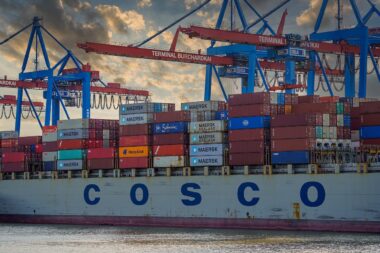The Impact of E-commerce on International Trade and Investment Linkages
E-commerce has transformed the global landscape of international trade, significantly enhancing investment linkages across various economies. Through online platforms, businesses can reach international markets more readily than traditional methods. Small and medium enterprises (SMEs) benefit from these opportunities, operating on a broader scale without considerable investment in physical infrastructure. The speed of transactions has dramatically increased, enabling companies to react swiftly to market demands. Greater accessibility to global markets allows firms to explore new opportunities, minimize risks by diversifying their clientele, and ultimately optimize their operational efficiencies. Furthermore, e-commerce simplifies the complexities involved in cross-border transactions. By eliminating geographical barriers, it facilitates communication between businesses and consumers around the world. However, challenges remain, including navigating diverse regulatory frameworks and overcoming infrastructure limitations in some regions. This evolving digital architecture is a double-edged sword; while it provides numerous prospects for growth, it requires considerable adaptability and quick problem-solving from businesses. Ultimately, understanding how e-commerce influences international trade and its investment linkages is essential for firms aiming to thrive in the competitive global economy.
The rapid growth of e-commerce has led to significant shifts in consumer behavior, affecting how products are marketed and sold internationally. Today’s consumers expect convenience, personalized experiences, and faster delivery options, emphasizing the need for companies to adapt their strategies accordingly. Businesses must invest in robust digital marketing, leveraging data analytics to understand consumer preferences better. Moreover, the success of an e-commerce venture hinges on an effective supply chain management system that ensures timely delivery and product availability across various markets. This demand for speed and efficiency often leads companies to rethink their traditional logistics strategies and to harness innovative technology solutions. The integration of advanced data analytics and artificial intelligence enables organizations to forecast demand precisely and optimize inventory management. Consequently, companies gain a competitive edge by reducing costs and improving customer satisfaction. Additionally, e-commerce fosters a collaborative environment among businesses, allowing them to share resources and expertise, thereby strengthening their position in international markets. As we venture further into the digital age, understanding these changing consumer trends will be pivotal for achieving sustained international growth and enhancing investment linkages.
E-commerce Platforms and Global Market Access
Various e-commerce platforms have emerged as vital facilitators for businesses seeking global market access. Amazon, Alibaba, and eBay are leading players in this digital marketplace, collectively bridging the gap between consumers and producers. By providing tools and resources, these platforms enable businesses to establish their presence in foreign markets without the barriers usually associated with international trade. Through streamlined processes—from listing products to payment processing—vendors can quickly operationalize their offerings on a global scale. This democratization of access encourages competition and innovation, allowing even small businesses to carve a niche for themselves. Furthermore, e-commerce platforms foster trust and credibility among consumers. Through customer reviews and rating systems, businesses build their reputation in new markets, helping to ease concerns related to product quality. Such platforms also often offer logistical support, assisting businesses in navigating cross-border shipping and customs regulations. This support enables smoother transactions, making international trade less intimidating for new entrants. Consequently, entrepreneurs are not only motivated to pursue global expansion, but they are also able to capitalize on emerging market trends and consumer needs in various regions worldwide.
Another critical aspect of e-commerce’s impact on international trade is the incorporation of digital payments. The rise of electronic payment systems like PayPal, Stripe, and cryptocurrencies has changed how businesses engage with international customers. These payment methods offer safer, quicker transactions compared to traditional currencies and banking methods, significantly reducing transaction costs and potential delays. The availability of multiple payment options can enhance customer satisfaction, leading to increased sales and customer loyalty. However, the challenges related to currency exchange rates and fraud prevention continue to be pertinent in the international arena. Organizations must, thus, ensure their chosen payment systems are equipped to tackle these challenges effectively. Furthermore, understanding the financial regulations and compliance requirements relevant to different regions is essential as businesses look to scale their operations globally. Enhanced security measures, transparent transaction processes, and compliance adherence are critical in building trust with international clientele. As e-commerce continues to grow, an understanding of digital payment systems will become increasingly important for businesses looking to succeed in a competitive environment while fostering strong investment linkages.
Regulatory Challenges and E-commerce
The rise of e-commerce has prompted various regulatory challenges as governments aim to keep pace with the rapidly changing landscape. Compliance with diverse regulations across different countries can present a significant hurdle for businesses seeking to engage in international trade. Issues such as taxation, product safety standards, and data protection laws vary markedly, complicating global operations. As companies expand into new markets, they must navigate this complex regulatory environment to avoid legal ramifications that can disrupt trade flows and tarnish reputations. Additionally, e-commerce has exposed vulnerabilities in areas such as cybersecurity, prompting governments to establish stricter guidelines to protect consumers. Firms must therefore invest in compliance strategies to remain aligned with international laws while ensuring their operations are secure against cyber threats. Businesses that can effectively manage these regulatory challenges are better positioned to capitalize on the numerous opportunities that e-commerce presents in global markets. Furthermore, collaborations with local partners can significantly aid in comprehending and conforming to local regulations, thereby allowing for smoother transitions and enhanced market penetration.
Sustainability is becoming an increasingly pressing issue within the context of e-commerce and international trade, influencing consumer preferences and corporate strategies alike. As more consumers express concern for environmental issues, businesses are driven to adopt sustainable practices. This includes utilizing eco-friendly packaging, optimizing shipping routes to reduce carbon footprints, and sourcing products from responsible suppliers. Companies that prioritize sustainability in their e-commerce strategies not only meet consumer demand but also benefit from a positive brand image. This awareness has led to innovative solutions, including the rise of green logistics and sustainable product offerings. Additionally, integrating sustainability into e-commerce operations can enhance international competitiveness, especially as regulations surrounding environmental practices tighten worldwide. Firms focused on sustainability can differentiate themselves in crowded markets, attracting conscientious consumers seeking ethically produced goods. Consequently, businesses can leverage sustainability as a core principle in their international investment linkages, forging stronger connections with consumers who value environmental stewardship. In the coming years, the relationship between e-commerce, sustainability, and international trade will become increasingly vital for companies aiming for growth and longevity.
The Future of E-commerce and International Trade
Looking ahead, the future of e-commerce will likely shape international trade dynamics significantly, with advancements in technology driving increased efficiency and accessibility. Innovations such as artificial intelligence, machine learning, and blockchain are expected to redefine how businesses manage their logistics, customer interactions, and transaction processes. As these technologies evolve, businesses will benefit from better insights into market trends and consumer behaviors, enabling them to adapt swiftly to changing demands. Additionally, the ongoing globalization process reminds us of the importance of fostering strong relationships across borders. Companies that prioritize relationship-building and collaboration in their e-commerce strategies will have a competitive advantage. The collaborative nature of e-commerce enables businesses to create partnerships that enhance product offerings and share resources, leading to mutual growth. Furthermore, as emerging markets continue to expand, businesses must remain agile and responsive to capitalize on new opportunities. Navigating the complexities of international trade requires a willingness to learn and adapt constantly. In this ever-evolving landscape, understanding and embracing the symbiotic relationship between e-commerce and international trade will be crucial for sustained success and investment linkages.
In conclusion, the integration of e-commerce into international trade significantly impacts investment linkages across the globe. By providing critical avenues for companies to access new markets while streamlining operations, e-commerce eliminates traditional barriers to entry. The digital revolution has transformed consumer behaviors, necessitating that businesses invest in novel strategies to adapt effectively. Sustainable practices also play an essential role in shaping future consumer preferences, offering companies not only a competitive edge but also a commitment to ethical standards. Regulatory challenges persist, but firms that navigate this evolving landscape with agility and foresight will be well-positioned for international growth. The role of digital payments further catalyzes this transformation, ensuring swift transactions and enhancing consumer loyalty. As the industry continues to evolve, staying abreast of technological advancements and emerging trends will be key for businesses looking to thrive. With the right strategies in place, firms can optimize their operational efficiencies while fostering strong connections in international markets. In this digital age, seizing e-commerce opportunities can bring sustainable growth and create rewarding investment linkages, underpinning the future of global trade.





